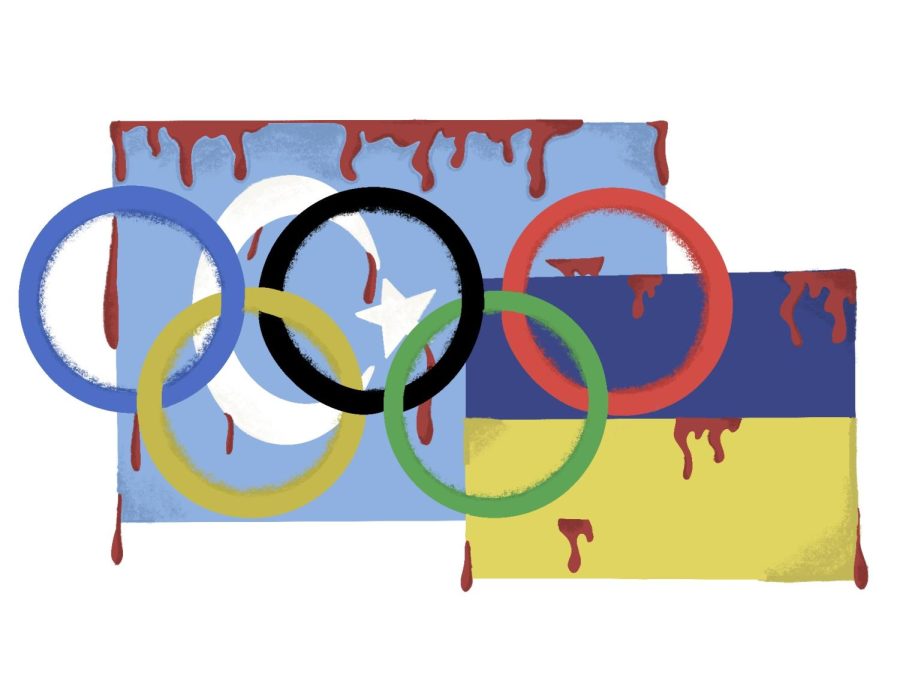Beijing Winter Olympics draw to tense close as political tensions rise
March 18, 2022
Over the course of 18 days, there were countless triumphs and history-making moments as athletes from across the globe gathered in Beijing for the 2022 Winter Olympics in a celebration of peace and unity.
However, throughout the games, there was an underlying atmosphere of tension from world events, beginning in December 2021 when US president Joe Biden announced he would send no American diplomats to Beijing to protest the treatment of Chinese Uyghurs. The Uyghurs are an ethnic minority in China who practice Islam and have been the subject of recent human rights issues. President Xi Xinping and other officials have repeatedly denied claims of poor treatment, despite some leaked reports of Uyghurs being detained in government re-education camps. Stories of life in the camps include the mass sterilization of women and children isolated from their families, according to an article by BBC News. Based on these reports, the US labeled this event as a “genocide” and refused to take part in the opening and closing ceremonies.
Political tensions leading up to the games rose as Russian troops began to move toward the Ukrainian border. Then, on the day of the opening ceremony, Xi met with Russian leader Vladimir Putin and formed a united front in the midst of rising difficulties between Western nations and Russia. Putin also agreed to increase trade with China from $140 billion in 2021 to $200 billion in a proposal, according to Al Jazeera. Following the meeting, Putin attended the opening ceremony that night.
Soon after the ceremony, Russia became the subject of controversy. 15-year-old figure skater Kamila Valieva, who was a gold-medal favorite, reportedly failed a test for a banned substance in December of 2021. The substance was later identified as trimetazidine, traditionally used to treat angina when less blood is transported to the heart. After a series of debates, the Court of Arbitration of Sport (CAS) concluded that due to concerns about Valieva’s mental health if she was disqualified from future events, she could skate in her remaining competitions. However, if she secured a spot on the podium in any event, there would be no medal ceremony. In her final event, the Women’s Single Free Skate, on Feb. 17, Valieva finished in fourth place after falling several times. Her teammates, Anna Shcherbakova and Alexandra Trusova, won gold and silver medals.
On Feb. 20, the twenty-fourth Olympic Winter Games officially came to a close. In the International Olympic Committee (IOC) President Thomas Bach’s closing speech, he offered a hint of optimism that despite nations’ political tensions, the athletes united.
“You embraced each other, even if your countries are divided by conflict. You overcame these divisions, demonstrating that in this Olympic community we are all equal. We are all equal – regardless of what we look like, where we come from, or what we believe in,” Bach told the athletes.
The next Winter Olympics are scheduled for 2026. Milan and Cortina, Italy will co-host the games.


